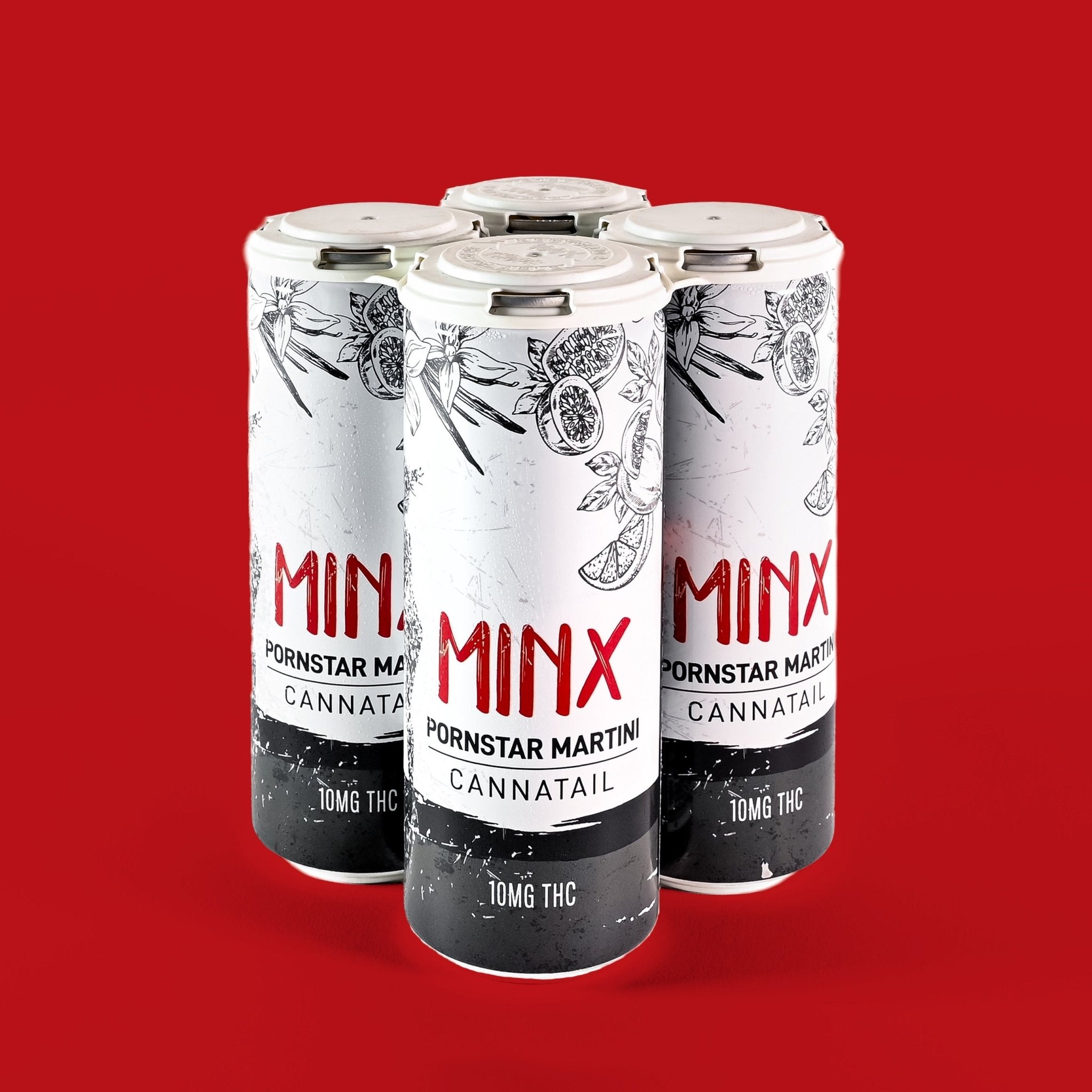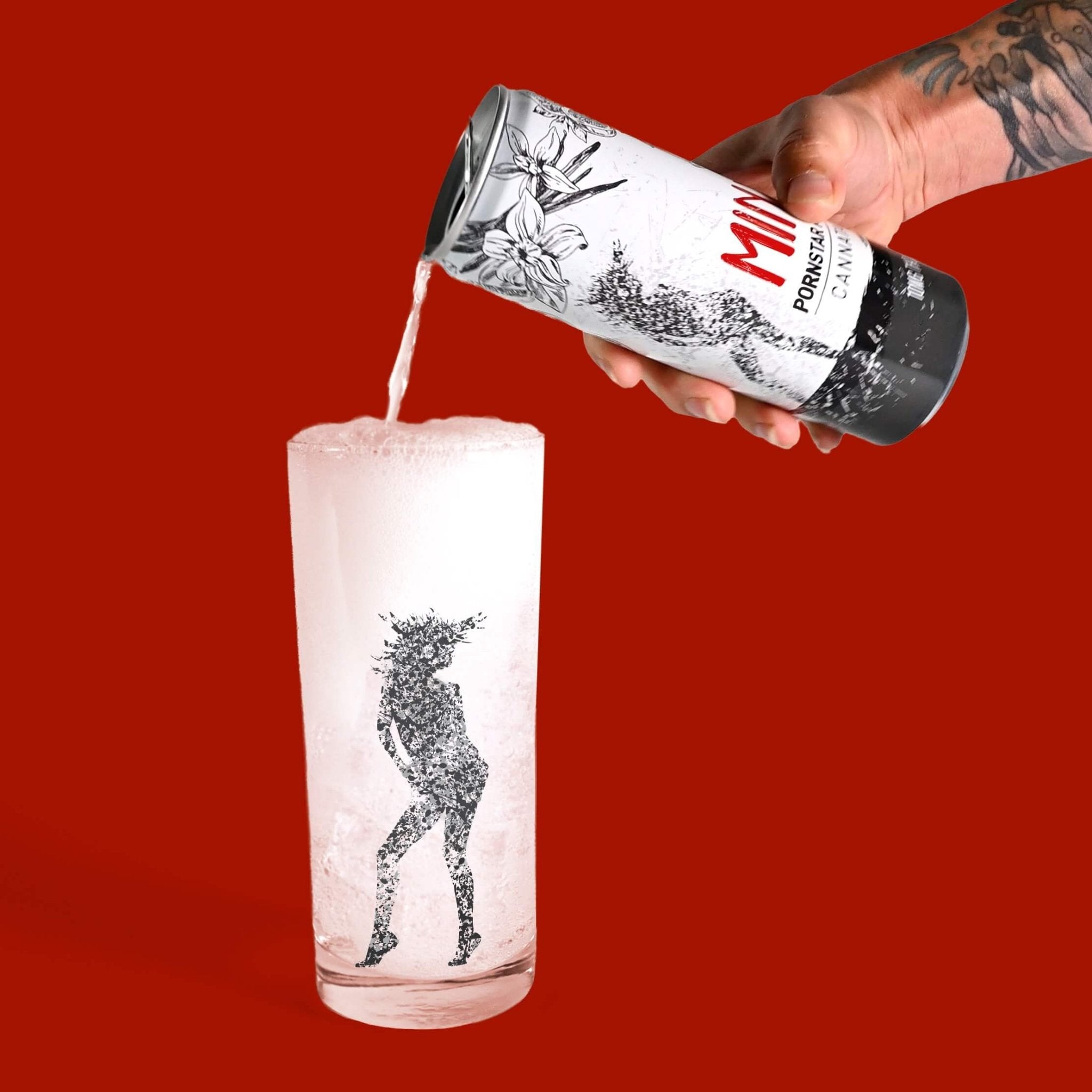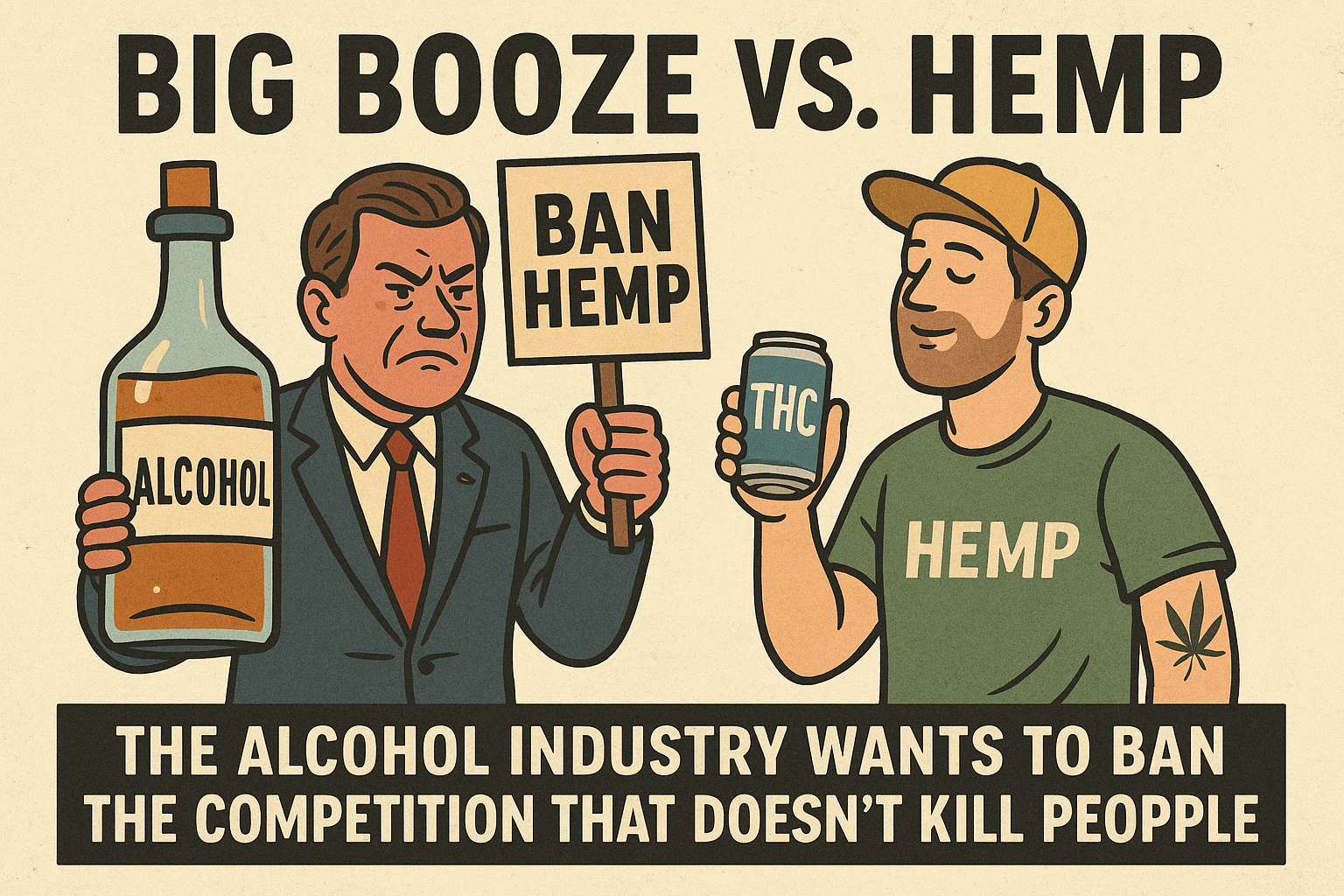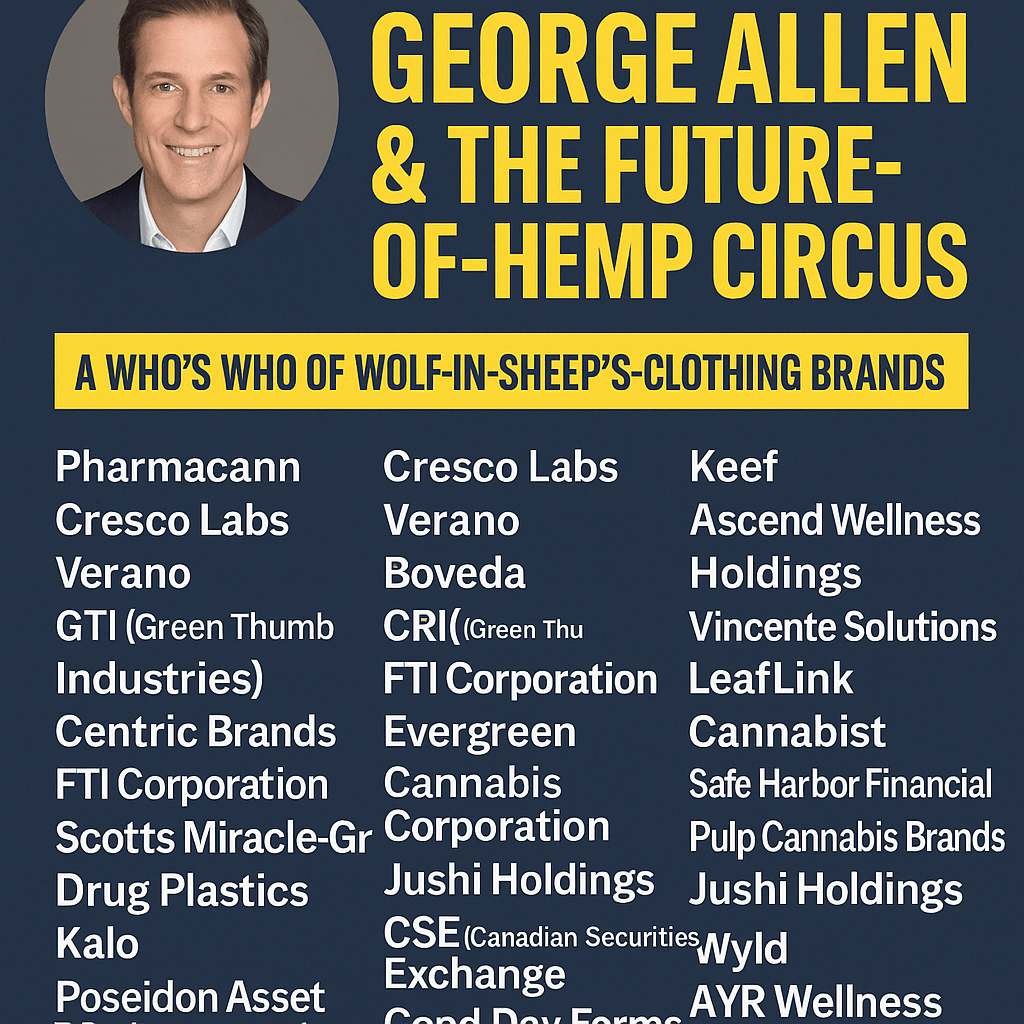Commentary from Nothing But Hemp
When Corporations Throw Tantrums: Jushi Holdings Edition
It’s official: Jushi Holdings Inc., through its Virginia subsidiary Dalitso LLC, has decided to sue DoorDash, Total Wine, and a bunch of other companies for the unspeakable crime of… selling legal hemp-derived THC products.
Somebody call the cops — DoorDash might have delivered a 2mg THC seltzer to someone’s doorstep! How dare they.
If this story sounds like the setup to a bad joke, that’s because it is.
At Nothing But Hemp, we read this and nearly spit out our CBD mocktails. Jushi — a publicly traded multi-state marijuana company — is suing because someone else is selling cannabis products legally. It’s like McDonald’s suing a salad bar for selling lettuce.
The Real Issue: Jushi’s Jealousy, Not Justice
Let’s just say what everyone’s thinking: this lawsuit has nothing to do with consumer protection.
It’s about jealousy.
Jushi and its fellow marijuana corporations can’t stand that hemp companies, delivery apps, and mainstream retailers are thriving in the cannabis space without getting strangled by 280E taxes and endless regulations.
Hemp businesses like ours operate under federal law, follow strict testing standards, and pay normal taxes. Meanwhile, marijuana companies operate under federal illegality, and thanks to IRS code 280E, they can’t even deduct rent or payroll.
It’s a brutal setup — but here’s the kicker: that’s their choice.
At Nothing But Hemp, we had a chance to apply for a marijuana license. We looked at the numbers and said, “Why would anyone want to run a business that’s taxed at nearly 70%?”
We’ll pass, thanks.
The irony? Any marijuana company could have done what we did — launch a hemp-compliant sub-brand and enjoy a federally legal path. But instead, Jushi’s approach is to lawyer up and lash out.
Jushi Holdings: The Cannabis Karen of 2025
Jushi’s lawsuit is the cannabis industry’s equivalent of yelling, “I want to speak to the manager!”
They see companies like DoorDash and Total Wine doing exactly what free-market capitalism encourages — selling legal, regulated hemp THC products to adult consumers — and they lose their minds.
Picture this:
“Excuse me! DoorDash is selling hemp gummies that comply with the 2018 Farm Bill! How dare they operate legally while we sit here paying 70% taxes!”
Meanwhile, DoorDash is just trying to make sure your taco order shows up with the right sauce packets.
And Total Wine? They’ve been selling literal poison — ethanol — for decades with zero issue. The idea that a 5mg hemp drink is somehow more dangerous than a bottle of vodka is laughable.
But Jushi’s not laughing. They’re fuming — because hemp is winning the market that marijuana thought it owned.
The Real Problem: They Want to Be the Only Ones in Town
Let’s decode this whole circus. Jushi isn’t scared of hemp — they’re scared of competition.
Big marijuana companies spent years building closed systems that require million-dollar licenses, politically connected lobbyists, and retail monopolies. They thought they had cannabis cornered.
Then along came hemp.
Hemp doesn’t need a state monopoly. It doesn’t need an army of lawyers. It doesn’t need a 200-page compliance binder and an overpriced “consultant.”
It just needs to meet federal guidelines under the Farm Bill — less than 0.3% delta-9 THC by dry weight. Simple, measurable, and perfectly legal.
Now, small businesses, craft producers, and even national retailers like Total Wine can sell hemp-based THC. Consumers get affordable access. Entrepreneurs get opportunity. And Jushi gets… angry.
Because suddenly, they’re not the only cannabis game in town.
From “Weed Freedom Fighters” to Corporate Gatekeepers
There’s an ugly irony here.
Marijuana companies like Jushi built their brand on being “rebels” — fighting for access, freedom, and equality. But now that they’ve secured their golden state licenses, they’ve turned into corporate gatekeepers.
They’re using the same exclusionary tactics that the alcohol and tobacco lobbies once used against them.
The message from Jushi is clear:
“We fought for legalization… but only for us.”
That’s not equity. That’s elitism in a green disguise.
Meanwhile, Hemp Keeps Helping Small Businesses
Here’s what Jushi doesn’t want to talk about:
Hemp is the only part of the cannabis industry that’s truly open and inclusive.
-
You don’t need a million-dollar license to start a hemp brand.
-
You don’t need to wait two years for regulatory approval.
-
You don’t have to sell your soul to investors.
Anyone can get involved — farmers, teachers, veterans, single parents, dreamers.
That’s what scares big marijuana corporations. Because they can’t control hemp. They can’t monopolize it. They can’t buy it all up.
And when independent hemp entrepreneurs start eating into their market share, their solution isn’t innovation — it’s litigation.
Virginia’s Hemp Rules Prove This Isn’t a “Wild West”
One of Jushi’s biggest arguments is that hemp products are “unsafe” or “unregulated.” But let’s look at their own backyard: Virginia.
Virginia already passed hemp laws that include strong safety measures, like:
-
Age restrictions for purchase (21+).
-
Child-resistant packaging.
-
Lab testing requirements for potency and contaminants.
-
Clear labeling of THC and CBD content.
-
Licensing for retailers and producers.
Those are safeguards, not chaos. Virginia has done what many states are doing — crafting common-sense hemp regulations that protect consumers while keeping the market open.
But apparently, Jushi isn’t satisfied with fair rules. They want exclusive control.
Because in their perfect world, no one should be able to sell a 5mg THC seltzer unless they’ve spent $10 million and filled out 600 pages of state paperwork.
DoorDash and Total Wine: The New Cannabis Heroes (Who Knew?)
We have to hand it to DoorDash and Total Wine. They didn’t just enter the hemp space — they validated it.
When a company like Total Wine adds hemp THC beverages to their lineup, it sends a message: hemp is mainstream.
When DoorDash allows legal hemp edibles on its platform, it says: hemp is here to stay.
They’re not breaking the law. They’re following it. And they’re giving adults access to safe, tested hemp products — often made by small American businesses.
That’s progress.
If Jushi’s lawyers are losing sleep over that, maybe they should try a 2mg hemp gummy and chill.
This Isn’t About Safety — It’s About 280E
Let’s call the villain by its real name: 280E.
It’s the federal tax rule that cripples marijuana companies. It prevents them from writing off normal business expenses. That’s why they’re paying 60-70% effective tax rates.
And you know what? We get it. That sucks.
But instead of channeling that frustration into lawsuits against legal hemp operators, maybe Jushi should focus their energy on Congress.
Lobby to change the law. Fight to deschedule marijuana federally. Fix your own tax nightmare.
Because suing people for doing what you could be doing legally just makes you look petty.
Nothing But Hemp’s Stance: Collaboration Beats Litigation
At Nothing But Hemp, we believe the entire cannabis ecosystem — marijuana and hemp alike — thrives when we work together.
We’ve collaborated with marijuana operators. We’ve educated lawmakers. We’ve championed fair rules that keep consumers safe without crushing small business owners.
We don’t need to tear others down to succeed.
Jushi’s lawsuit, on the other hand, screams insecurity. It’s an admission that the hemp sector is outpacing traditional marijuana — not because of loopholes, but because of better business sense.
Hemp Businesses Follow the Law — Period
Let’s make something clear: hemp companies aren’t “skirting the system.” We are the system.
The 2018 Farm Bill legalized hemp and its derivatives — including cannabinoids and THC derived from hemp, as long as the product contains less than 0.3% delta-9 THC on a dry weight basis.
That’s not a loophole. That’s literally the law.
The DEA itself confirmed it.
So when Jushi accuses hemp sellers of being “illegal,” they’re not citing federal law. They’re citing hurt feelings.
Hemp = Innovation. Marijuana = Regulation.
This lawsuit highlights the biggest philosophical divide in cannabis today:
| Hemp Industry | Marijuana Industry |
|---|---|
| Federally legal | Federally illegal |
| Encourages innovation | Encourages restriction |
| Supports small businesses | Favors large corporations |
| Normal tax rates | Punished by 280E |
| Open market | Closed market |
| Embraces collaboration | Files lawsuits |
Who would you rather buy from?
Social Equity Irony: Jushi’s Actions Hurt the People They Claim to Help
Let’s not forget — every time a corporation like Jushi sues to restrict hemp, they’re hurting social equity entrepreneurs.
Hemp is how many minority-owned, women-owned, and veteran-owned businesses got their start in cannabis. It’s accessible. It’s affordable. It’s not locked behind million-dollar gates.
When Jushi fights hemp, they’re not protecting the industry. They’re protecting their market share — at the expense of the very people they claim to uplift.
That’s not justice. That’s hypocrisy with a lawyer.
Nothing But Hemp’s Final Thoughts: Jushi, Have a Seat
Let’s all take a deep breath and remember one thing:
This is hemp we’re talking about. Not cartel cocaine. Not fentanyl. Hemp.
Legal, tested, federally compliant hemp.
DoorDash is not running a black-market delivery empire. Total Wine is not slinging “illegal weed” next to Chardonnay. These companies are doing what smart businesses do — adapting to consumer demand within the law.
Jushi’s lawsuit reads like a panic attack from a company that realizes the world is changing faster than their business model.
At Nothing But Hemp, we’ll be over here continuing to innovate, collaborate, and sell high-quality, compliant hemp products. Because progress doesn’t come from lawsuits — it comes from leadership.
Quote from Nothing But Hemp
“The cannabis industry should be united, not divided.
The fact that Jushi Holdings would sue legal hemp sellers like DoorDash and Total Wine shows just how scared the old guard has become.
At Nothing But Hemp, we welcome fair competition. We welcome regulation that keeps people safe.
What we don’t welcome are monopolies disguised as moral crusades.”— Steven Brown, Founder of Nothing But Hemp
Final Thought: If You Can’t Compete, Don’t Sue — Innovate
Here’s a free business tip, Jushi: If you can’t beat hemp, join it.
Start a hemp division. Partner with existing brands. Use your influence to make the industry stronger — not smaller.
Otherwise, you’ll just be remembered as the company that sued DoorDash for delivering hemp gummies.
And honestly… that’s not a legacy anyone should be proud of.







































